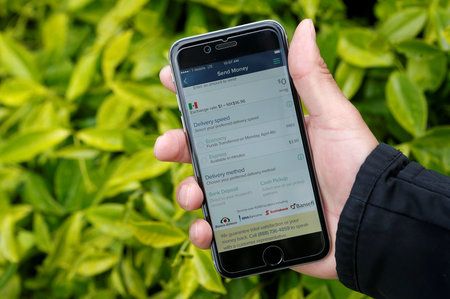Advertisement
Money-Saving Tips From Those Who Experienced Poverty

Best Money Saving Hacks, According To People Who Grew Up Poor
Introduction: Understanding Money
Before we dive into money saving hacks, it’s best to center our understanding of what money is and how it works. For many people, especially those who’ve grown up without a lot of it, money represents security, freedom, and opportunity. Its role in society, the way it influences decisions, and the emotions associated with it varies greatly.
A common misconception about money is that you need to have a lot of it to be financially secure. This couldn’t be further from the truth. Financial security stems from how well you manage your money, not necessarily from how much of it you have. Regardless of income level, it’s possible to find yourself struggling financially if you don’t understand how to manage your finances properly.
One of the ways to achieve financial security is by learning how to save money effectively. It’s not about depriving yourself; it’s about making wise choices. No matter how small or large your income, there are strategies you can implement to help stretch each dollar further. The following sections will cover money-saving tips inspired by those who grew up poor and became financially savvy.
A Mindful Approach
The basis for any successful savings strategy starts with a mindset shift. Many of us develop unhealthy habits and beliefs about money early in life, which can hinder our ability to make smart financial decisions. A mindful approach involves recognizing these patterns and actively working to change them.
To begin, make a commitment to be more conscious of where your money is going. Start tracking your daily, weekly, and monthly expenses. Identify areas where you’re overspending and could potentially cut back. This doesn’t mean that you eliminate all non-essential spending, but rather focus on reducing waste and making better buying decisions.
For instance, suppose you notice you’re spending a significant portion of your salary on takeout every month. You don’t enjoy cooking and are always too tired after work to prepare your own meals. Instead of completely cutting out takeout, consider:
Adopting Frugal Habits
Frugality isn’t about deprivation, it’s about maximizing value and minimizing waste. Aggressively saving every penny isn’t healthy or sustainable. The trick is to find a balance between enjoying the present and preparing for the future.
One way to practice frugality is by distinguishing between wants and needs. Needs are expenses that are necessary for survival (like food, shelter, utilities, etc.), while wants are things that enhance or improve our lifestyle (like designer clothes, fancy dinners, high-tech gadgets, etc.). By focusing your spending on needs and limiting non-essential expenses, you can save more money without leading a miserly life.
A good illustration of this principle in action might be found in Jack’s story. He grew up in poverty but has since become financially secure. Despite earning a good salary now, he continues his frugal habits from his childhood. He shops at the second-hand store, opts for generic brand groceries instead of name brands, and limits dining out. Here are some other hacks Jack uses:
Financial Skills: The Importance Of Budgeting
Budgeting is simply the act of allocating your income towards various expenses during a certain period, usually a month. It helps you plan ahead, ensuring that you have enough money to cover all of your needs and some of your wants.
Budgeting can often feel daunting or restrictive, especially if you’re new to it. However, it’s an extremely practical tool for tracking and managing your finances, ensuring you live within your means. By consistently sticking to a budget, you’ll be less likely to overspend and more likely to build up savings gradually over time.
Suppose Tiana earns $2000 a month, her rent is $800 and spends around $400 on groceries and bills. She was rarely able to save because she’d end up using the remaining money ($800) on clothes, eat-outs, and other items. By implementing a budget, she could set $500 aside for savings, leaving her with $300 for discretionary spending. Here are some additional ways Tiana was able to effectively utilize her budget:
Emergency Fund: The Importance Of Saving
An emergency fund is like having insurance—it provides financial security in case of unexpected situations. When you’re living paycheque to paycheque, any hiccup can plunge you into financial turmoil. That’s why saving up an emergency fund is so important.
How much should be in your emergency fund depends on the individual, but a general rule is having 3-6 months’ worth of expenses saved up. It may take time to build up this amount, especially if you’re just starting out or juggling other debts, but even saving a small amount regularly can add up over time.
Suppose James earns $1000 a month and his expenses total about $800 per month. He decides that he’d like to build an emergency fund that covers 3 months’ worth of expenses ($2400). Even if James could only save around $50 a month, after four years, he’d have his emergency fund ready. Here’s how he was able to do it:
Money-Saving Hacks For Transport And Travel
Transportation costs can make a big dent in your monthly budget. It’s vital to figure out ways to reduce these expenses. The exact strategy will depend on your location and personal circumstances, however, there are many broadly applicable tips.
A bike can be a convenient and economical way to travel short distances in urban environments, especially where public transport is expensive or unreliable. For families with multiple vehicles, consider whether all are necessary—could you fulfill your needs with just one car?
Carmen lives in a city where owning a car is more expensive due to high parking costs and regular traffic jams. She finds it cheaper and healthier to cycle wherever possible. On occasions when she does require a vehicle, she uses car-sharing services. Carmen’s strategies include:
Thrifty Shopping: Clothes And Other Items
Shopping habits can greatly influence your ability to save money. It’s easy to overspend if you frequently make impulsive purchases or always buy items at full price.
The key is to learn to shop strategically, buying items you need, not just what you want. Learn to distinguish between high quality and high price – they don’t always go hand in hand. Additionally, recognizing when sales truly offer savings, as opposed to when stores are simply trying to lure customers into buying more, can also help.
Imaan has developed several thrift shopping habits over the years, ensuring she gets value for her money without depriving herself of things she enjoys. Her tips:
Cook At Home And Avoid Excessive Eating Out
Eating out regularly can take up a significant proportion of your budget. Learning to cook at home not only saves money but can also be healthier.
This doesn’t mean never eating out, but try to save it for special occasions or treat-days. Also, consider choosing less costly options when you do dine out by skipping drinks and dessert or sharing entrees.
When Brenda started her financial saving journey, she focused on cooking at home more frequently. She experimented with recipes, made meals in bulk to freeze for later, and learned to make her favorite restaurant meals at home. Here’s how she maximised her savings:
Energy Savings: A Step Towards Money Savings
The cost of utilities can often be overlooked when brainstorming ways to save money. However, finding ways to use less electricity, gas, and water can provide substantial savings over time.
Simple changing daily habits like turning off lights when leaving a room, unplugging devices when they’re not in use, or taking shorter showers can help. Some energy-saving measures might require an upfront investment, like buying energy-efficient appliances or insulating your home but are worth considering.
Mark’s decision to reduce his utility costs ended up saving him about a quarter of his monthly utilities bill—a significant addition to his savings at the year-end. Here’s how he orchestrated the reduction:
Conclusion
Saving money isn’t easy, especially when you didn’t have much to start with. But regardless of your financial background, remember that making small changes can lead to significant results over time. Whether it’s opting to cook at home, implementing a strict budget, or driving less, every little bit helps.
Remember, everyone’s financial situation is unique, so tailor these tips according to what suits you the best. The key is to be consistent and patient—gradually, these money-saving habits will come naturally, and before you know it, you’ll be well on your way to a better financial future!
Here’s a quick summary of the main points we’ve covered:
| Tips | Description |
|---|---|
| Mindful Spending | Track your expenses regularly and identify unnecessary spending. Limit takeouts, consider cheaper alternatives if viable. |
| Frugal Habits | Distinguish between needs and wants. Adapt to buying goods in bulk and repurposing items. |
| Budgeting | Allocate funds efficiently between required expenses and savings, restricting money for impulsive spending. |
| Emergency Fund | Save consistently for unexpected expenses to avoid financial stress. Prioritise setting aside an emergency fund to cope with unforeseen situations. |
| Transport & Travel | Depending on your lifestyle and the city, consider alternatives to private vehicles. Save by opting for public transport, bicycles or car-sharing services |
| Thrifty Shopping | Develop savvy shopping habits – buy second hand, wait for sales, avoid impulse buying, invest in quality that lasts longer |
| Cook at Home | Minimise eating out, enjoy more home-cooked meals. Try bringing packed lunches to work and baking at home. |
| Save Energy | Adopt energy-saving habits, switch to energy-efficient appliances. Consider investments in insulating your home. |
Remember, these are just guidelines. Start slow, make small changes, and see how they work for you. Being mindful of your financial habits will help you see improvement in no time!










